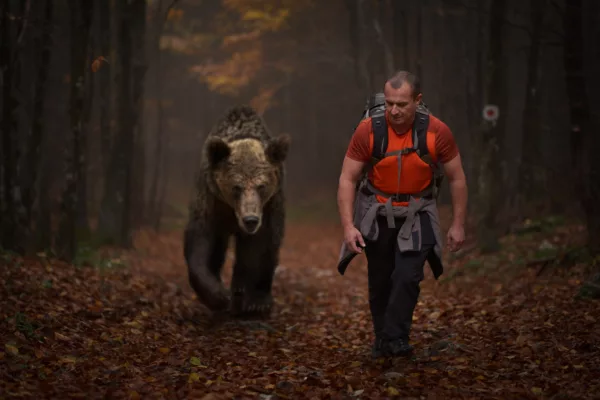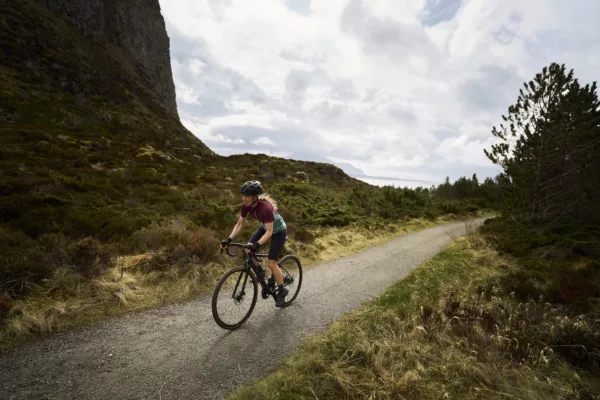Gadd’s Truth: Don’t Call it Fun

The most abused quote inthe outdoor world paradoxically came from one of the climbers I most respect: Alex Lowe.
Lowe was one of the first professional climbers and immensely talented across a wide spectrum of outdoor sports. He is an icon of American climbing, and I really enjoyed him whenever I saw him. He was as strikingly charismatic as he was low-key, especially for someone whose physical abilities and mental ferocity earned him the nickname: “The Fiend.” To dislike something that Lowe believed in and lived by is like a Christian disliking the words of Jesus — you just don’t do that as a devout and practising climber. Lowe’s quote went something like, “The best climber in the world is the one having the most fun.”
But the more I do these sports the more I realize they aren’t primarily about “fun.” And that those people seizing on the quote to justify “fun” are missing the deeper side of outdoor sports.
Lowe died with one of my best friends, David Bridges, while trying to ski an 8,000-metre Himalayan peak, Shishapangma. The world lost two really good people that day — nearly three, in fact, as my friend and continued inspiration, Conrad Anker, barely survived the same slide. And this is what bothers me about Lowe’s quote on climbing: “fun” is by definition light, easy and casual. At the very best and very worst outdoor sports aren’t light, they aren’t easy and they sure as hell aren’t casual. These activities are bigger than just “fun,” and to use “fun” as a measure of their success or failure is to totally miss the point. Our outdoor experiences are as deeply life-changing as religion or having children. As outdoors-people, we believe that our activities are so deeply meaningful that they are often more important than any other endeavor. Meaningful activities can definitely be fun, but fun is a sub-set of meaning, not the other way around.
Lowe’s quote does make our outdoor obsessions more understandable to the general population. When answering the question, “Why did you camp-out at -40 without an RV for a week?” “It’s fun,” sounds right and puts what we do into a context accessible to a non-believer. But camping at -40 is far less about fun than it is about some sort of religious experience that is alternately very fun and very not-fun. If we’re honest about our adventures, we often suffer, are miserable and are in some sort of pain when in the midst of our “fun.” These activities are closer to religion than fun — with all the attendant community, hierarchy and true belief. If I were to ask a strongly religious person why he or she sat on a hard bench for hours every week or kneeled toward Mecca five times a day, I doubt I would hear, “for fun.” It’s only when trying to attract outsiders to a religion or adventure that we invoke the word, “fun.”
Fun is a sales tactic believers use to make difficult (but ultimately rewarding) tasks sound enticing to non-believers. It’s not the metric by which to measure truly powerful experiences in life. It’s a shell game of words to pull us in.
Fun is by its nature transitory and passing. Outdoor sports can be very fun of course, but our outdoor experiences shape our identities and outlook for a lifetime. I volunteer with various outdoor-related causes, as I think many people today need more meaningful experiences and less packaged “fun.” More sunlight and sunburns; s’mores and burned lips; whittling and cut fingers; hikes and scraped knees; summits and reasoned decisions not to go for the summit. Each of these pairs can be a memory that gives life meaning and shapes it going forward, even as each pair has a component that isn’t fun.
We seem so obsessed with having fun outdoors that we often try to classify miserable experiences as “fun.” Climber/blogger Kelly Cordes wrote an excellent article about the different types of fun — from Type I Fun, which is fun while it’s happening; to Type II Fun, which is an experience only fun in retrospect; to Type III Fun, which is an experience that will never be fun, even in retrospect. Cordes drinks too much tequila and has a mullet, but even he clearly recognizes that it doesn’t have to be fun to be fun. Conversely, fun itself can become un-fun after a remarkably short time, as anyone who has drunk too much tequila will attest.
Alex Lowe tried hard, ridiculously hard, even if it wasn’t always fun. Lowe was so obsessed with climbing and training that he used to dig deep pits in the snow at basecamp and do pull-ups from skis laid across the hole. Was this fun? I don’t know, but I suspect that it was, and that there was much laughter between my friends at Shishapangma base camp. They knew they were doing something meaningful together, and the experience would live long after their trip. And that is the gift outdoor sports give, and why I need to get outside now. With any luck it’ll be a fun climb — even if it isn’t.
This article originally appeared in our Spring 2014 issue.














